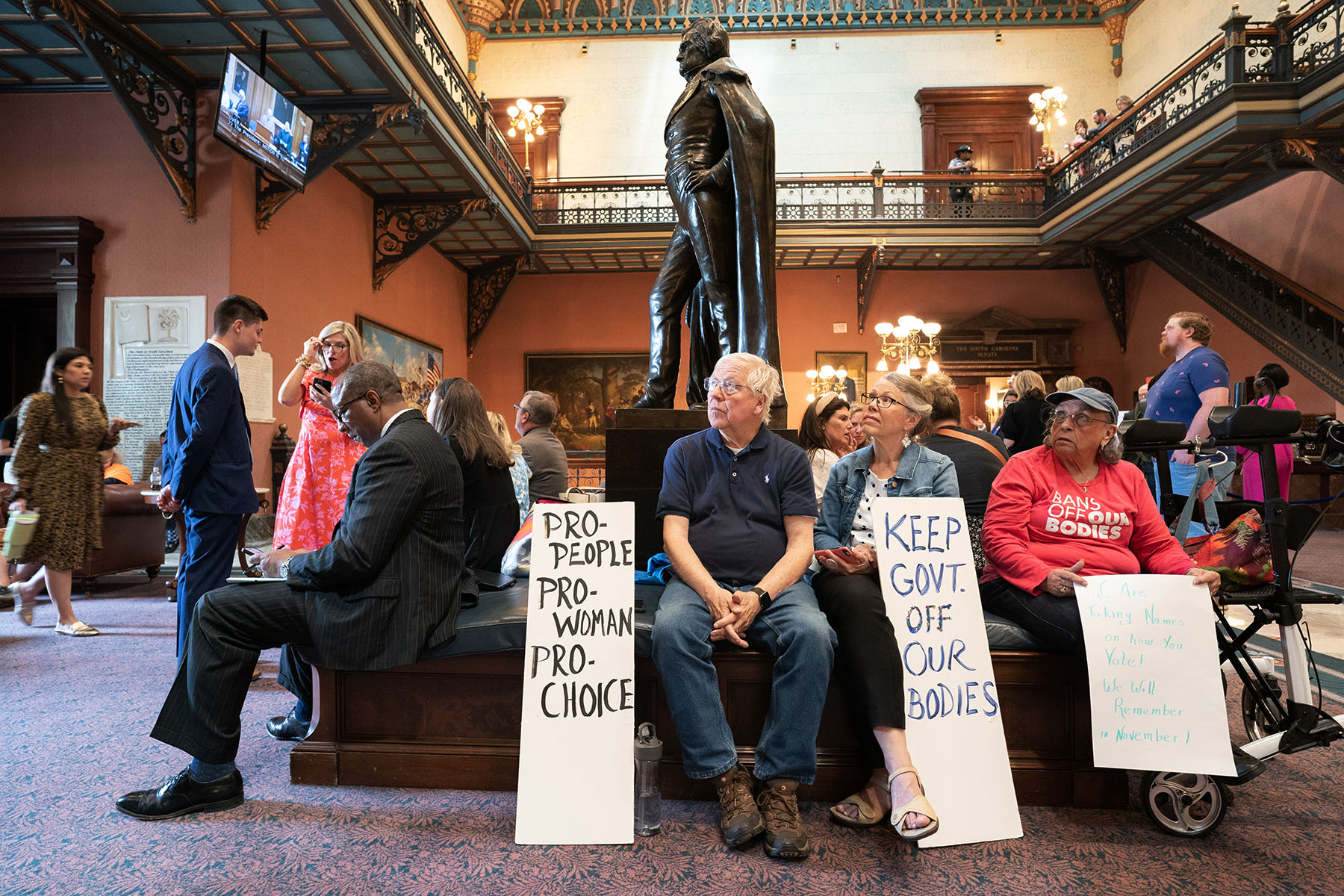Your trusted source for contextualizing abortion news. Sign up for our daily newsletter.
The South Carolina Supreme Court has allowed the state’s six-week abortion ban to take effect, which will further erode abortion access in the South.
The ban, which Republican Gov. Henry McMaster signed into law in May, will take effect immediately. Until now, abortion has been legal up to 22 weeks of pregnancy in South Carolina — the latest of any state in the South — and the state’s three abortion clinics provided care up to 14 weeks.
The decision marks a reversal from a ruling issued this past January, in which the court struck down a similar six-week ban. Lawyers for Planned Parenthood, which operates two of the state’s three abortion clinics, argued that the January ruling made clear that South Carolina’s state constitution protected the right to an abortion and that a ban at six weeks made the procedure functionally unobtainable. (Many people do not know they are pregnant at six weeks.)
But the court’s makeup is different than it was in January, with its sole woman justice, who wrote that opinion, retiring in February. South Carolina Republican lawmakers, who largely back the six-week ban, had hoped that change would help them secure a favorable ruling this time around. Four justices voted to uphold the ban, with one dissenting.
The ban will significantly curb access to abortion.
-
Previous Coverage:
-
Previous Coverage: South Carolina House passes six-week abortion ban
State data from between 2019 and 2021 suggests that most abortions in South Carolina took place after six weeks of pregnancy. People seeking an abortion in the state will now have to detect their pregnancy incredibly early — the first sign of pregnancy is often a late menstrual period, at which point the person is already past four weeks pregnant — and will need to schedule an appointment and secure the money to pay for an abortion, which can cost hundreds of dollars. The window also leaves little time for people to decide if they would like to keep an unintended pregnancy or terminate it.
The implications will also be felt across the region. A preliminary state analysis found that South Carolina reported 1,000 more abortions in 2022 compared to the year prior, likely the result of people traveling there from states with tighter abortion limits. Abortion is almost completely banned in Alabama, Louisiana, Mississippi and Tennessee, and is only allowed up to six weeks in Georgia. Now, people traveling from those states for care could turn to Florida or North Carolina — but new restrictions in both of those states mean they are more likely to travel to states like Virginia and Illinois.
In Florida, abortion is only allowed up to 15 weeks, and pending a state court ruling, the state is likely to soon enforce a six-week ban as well. North Carolina, which previously allowed abortion up to 20 weeks, began to enforce a 12-week ban on the procedure earlier this summer.






